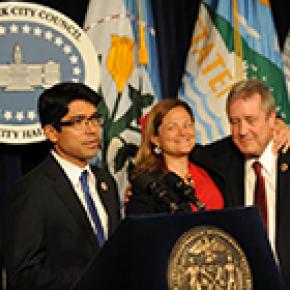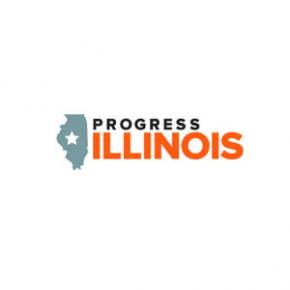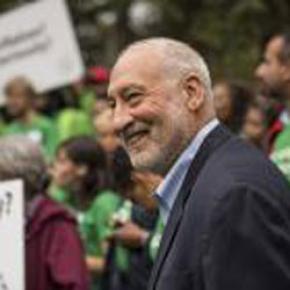City Council Votes to Create Municipal ID Cards
NY Daily News - June 26, 2014, by Erin Durkin - The City Council voted to create municipal ID cards Thursday, giving the city’s half a million undocumented immigrants a way to prove their identity...
NY Daily News - June 26, 2014, by Erin Durkin - The City Council voted to create municipal ID cards Thursday, giving the city’s half a million undocumented immigrants a way to prove their identity.
The 43 to 3 vote will launch the largest local ID program in the nation - also allowing transgender, homeless, and elderly people who sometimes struggle to get driver’s licenses to secure an ID. Two members abstained from voting.
“Plain and simple, this is an ID for everyone,” said Speaker Melissa Mark-Viverito. “We don’t accept that some people will simply be left out because of their immigration status, how they identify their gender, or whether they may be homeless.”
The cards are expected to start being issued in late 2014 or early 2015, and will cost $8.4 million to launch over the next year and $5.6 million a year to keep running after that.
To get an ID, an applicant will have to prove their identity with documents like a birth certificate or passport from any country, and prove they live in New York through papers like utility bills and pay stubs.
The cards will be accepted by city agencies from residents seeking services, let parents enter school buildings, and give people an ID to present to police if they are stopped, which sometimes spells the difference between spending a night in jail and being released.
The city is aiming to get banks and landlords to accept the card from people trying to open bank accounts or sign leases, but private institutions will not be legally required to accept it.
Critics say the bill does not make requirements for the ID secure enough to ensure it won’t be abused.
“There are legitimate security concerns that have not been adequately addressed,” said Minority Leader Vincent Ignizio (R-Staten Island), who voted no. “There are ways we can tighten it up, and there are ways we should tighten it up.”
He added the city should “want to encourage people to come here legally.”
Others feared the cards would become a scarlet letter of sorts identifying people as undocumented.
Councilman Alan Maisel (D-Brooklyn), who abstained, said he fears the cards could be used by a future anti-immigrant federal administration to mount a crackdown on the undocumented. “We are basically presenting and preparing a list of undocumented workers,” he said. “I don’t think people should be placing themselves in the position where they can be identified when they are not here legally.”
Officials say they’ll try to combat that stigma by putting benefits such as museum discounts on the card to encourage a broad group to sign up, but details of that plan have not been worked out.
Cards will include a holder’s name, picture, address, and date of birth. Applicants will get to choose whether to have the gender they self-identify with listed on the card, answering a demand from transgender advocates who say they will be able to have an ID that matches their gender identity for the first time.
Other cities including Los Angeles, San Francisco, and New Haven currently have municipal IDs.
Councilman Mark Weprin (D-Queens) advised those with concerns about the program to “relax” and predicted the card would have broad appeal.
“We live in the coolest city in the world, and now we have a membership card,” he said. “People are going to want to be part of that club.”
Update: Mayor de Blasio, a strong backer of municipal IDs, said in a statement:
“Every New Yorker deserves an official identification that allows them to prove who they are and access core services. I thank Speaker Melissa Mark-Viverito, Councilmembers Daniel Dromm and Carlos Menchaca, and the entire City Council for quickly enacting this critical legislation, and all of the advocates who have worked so hard to make community voices heard. The municipal ID is more than just a card – it provides New Yorkers who are currently living in the shadows with dignity and peace of mind. My administration is fully ready to develop this plan and to swiftly implement a secure and accessible Municipal ID Card program.”
Source
Letter: Gorsuch wrong for Supreme Court
As a faith leader deeply involved in the lives of working people, I understand the impact that the nation’s highest court can have on our daily lives. We need a Supreme Court Justice committed to...
As a faith leader deeply involved in the lives of working people, I understand the impact that the nation’s highest court can have on our daily lives. We need a Supreme Court Justice committed to protecting the rights of all people. The more I learn about Neil Gorsuch, confirmed by the Senate on Friday, the more convinced I am that he is not that justice...
Read full article here.
Illinois African-American Jobless Rate Among The Nation's Highest
Illinois African-American Jobless Rate Among The Nation's Highest
The African-American unemployment rate in Illinois is improving, but it is still one of the highest in the nation, shows a ...
The African-American unemployment rate in Illinois is improving, but it is still one of the highest in the nation, shows a recent analysis by the Economic Policy Institute (EPI).
The jobless rate among African Americans in Illinois declined to 11.5 percent in the second quarter of 2015, which covered April through June. The rate ticked down from 12.5 percent during the first quarter of 2015.
To put that 11.5 percent in perspective, the statewide unemployment rate in Illinois was 6 percent during the second quarter of 2015. In that quarter, African Americans in Illinois had the highest jobless rate followed by Hispanics at 7.9 percent, Asians at 4.8 percent and whites at 4.6 percent, according to EPI's review.
Illinois is one of only eight states in which African-American unemployment rates were at or below pre-recession levels in the second quarter of 2015. The other states were Michigan, Indiana, Ohio, Tennessee, Mississippi, Texas and Missouri.
But a closer look at the numbers shows that nearly all of those states had the highest African-American unemployment levels in the nation before the Great Recession hit.
For example, Illinois had an African-American jobless rate of 12.2 percent before the recession in the fourth quarter of 2007.
"African Americans are still unemployed at a higher rate than their white counterparts in almost every state," EPI economist Valerie Wilson, who conducted the unemployment analysis, said in a statement. "We need policies that look beyond simply reducing unemployment to pre-recession levels as an end goal."
EPI's analysis covered 23 states and the District of Columbia. Only two states, New Jersey and South Carolina, and the District of Columbia had higher African-American unemployments rates than Illinois in the second quarter of 2015.
Overall, the African-American unemployment rate was the highest in the District of Columbia, 14.2 percent, and the lowest in Tennessee, 6.9 percent. The rate was below 10 percent in 11 states examined by EPI.
Nationwide, the African-American unemployment rate dropped to 9.1 percent in July, the lowest level in seven years. Still, the jobless rate for African Americans remained about twice as high as the white unemployment rate of 4.6 percent.
EPI and the Center for Popular Democracy (CPD) are at least two groups that say African Americans would benefit greatly in terms of employment and wage growth if the country were to achieve full employment. They have called on the Federal Reserve to pursue "genuine full employment" before raising short-term interest rates.
At some point this year, the Fed could begin to raise the rates, which were cut to near zero percent during the Great Recession to support the economy.
In a recent statement on the full employment issue, CPD's director of strategic research Connie Razza stressed that "Black America is still in the middle of a Great Recession."
"When [Fed] Chair [Janet] Yellen and other Fed officials talk about raising interest rates in 2015, they are talking about intentionally slowing down the economy and job growth, which would make it harder for most Americans, and particularly Black workers, to find good paying jobs," she said. "The direct consequences of the Fed's projected interest rate hikes would harm millions of workers."
"Instead," Razza continued, "the Fed could continue to push toward a tight labor market, in which the number of people looking for work more closely matches the number of jobs available. A full-employment economy, as we saw in the late 1990s, shrinks racial inequity and will bring particular benefits to black workers, who are disproportionately unemployed, underemployed, underpaid, and endure more difficult scheduling circumstances in the workplace."
Source: Progress Illinois
Hearing on charter schools brings out varied opinions
State Pennsylvania Auditor General Eugene DePasquale got an earful during a daylong meeting in Philadelphia on Friday on ways to...
State Pennsylvania Auditor General Eugene DePasquale got an earful during a daylong meeting in Philadelphia on Friday on ways to improve the accountability and effectiveness of charter schools.
Paul Kihn, deputy superintendent of the Philadelphia School District, warned that if Harrisburg passed pending legislation that would permit the unlimited growth of charters, the cost to the district would be so devastating that it might not be able to manage its own schools.
Lawrence Jones Jr., head of Richard Allen Preparatory Charter School in Southwest Philadelphia, said the state needs to provide equitable funding for both district and charter schools.
"This grand experiment is one that is about to collapse under its own weight, because we are doing such a poor job in oversight," said Donna Cooper, executive director of Public Citizens for Children and Youth.
Kyle Serrette, education director for the Washington-based Center for Popular Democracy, said his organization was stunned by the number of federal fraud cases involving charter officials that have occurred in Pennsylvania in recent years.
His group, which works with community groups and unions, called for "a comprehensive investigation that allows the public, regulators, and legislators to better understand the depth of the problem" to improve oversight.
And Philadelphia City Controller Alan Butkovitz told the auditor general that his office is taking another look at the district's charter school office and a group of city charter schools.
The review, which he expects to be completed in a few months, is a follow-up to a study his office completed in 2010 which found that the charter office "was not doing its job" overseeing the schools and that questionable practices were rampant at 13 charters it reviewed.
It was the fifth and final meeting that DePasquale has held across the state to gather input on improving the state's 174 taxpayer-funded charters, which enroll 120,000 students.
Philadelphia is home to 86 charters with 67,000 students.
Source
As Atlanta Fed President Retires, Some Call For Diversity

As Atlanta Fed President Retires, Some Call For Diversity
The Federal Reserve has received a lot of criticism recently for its lack of diversity. The leaders of the central banking system are almost all white men.
But now that the president of one...
The Federal Reserve has received a lot of criticism recently for its lack of diversity. The leaders of the central banking system are almost all white men.
But now that the president of one of the Fed’s 12 regional banks in Atlanta is stepping down, some see an opportunity for change.
Several congressional lawmakers and the activist group Fed Up are calling on the agency to appoint the system’s first black president at the Federal Reserve Bank of Atlanta.
“The fed is the nerve center of our entire economic system, and nobody is suffering from an economic depression as the African-American community,” Congressman David Scott said.
The Georgia Democrat co-wrote a letter, along with Reps. John Lewis, Maxine Waters and John Conyers, to Federal Reserve Chair Janet Yellen on the issue.
Black workers still struggle, Scott said, even as the overall economy has recovered. The jobless rate for African Americans, for example, is more than double their white neighbors.
Outside an unemployment office on the west side of Atlanta, Formosa Williams is at her wit’s end.
“At this point, I don’t know what to do,” Williams said.
For years, Williams said she has struggled to find stable work.
“The only jobs that really seem to be hiring are like fast food,” Williams said. “And it’s no way I’m going to go back to that.”
Scott and the activists hope stories of minority workers, like Williams, will take a more prominent place in the central banking system’s discussions once it has a black regional president.
“Unless you have a voice at that table that has gone through the experience of being an African American, you’re missing so much,” said Scott.
The congressman and activists argue the appointment also makes sense, given the region the bank covers -- the South -- and that region’s history with civil rights.
But while many economists might agree that diversity is good, they aren’t all sure how it translates into policy.
“I think you have to start out with the recognition that our Federal Reserve officials have really one tool, and that’s interest rates,” said Tim Duy, an economics professor at the University of Oregon. “That tool is a very blunt instrument.”
That tool affects the broader economy at a macro-level, said Duy, who also authors a blog called Fed Watch. Meanwhile, he said, many of the problems facing African-American workers are at the micro-economic level.
“The Federal Reserve is not going to be a silver bullet to these issues,” Duy said.
The search for the next Atlanta Fed president is being led by a committee of business leaders from around the South.
The chair, Thomas Fanning, who is president of Southern Company, said they’re looking for the best person most of all.
And if he or she happens to make history, as the first African American?
“That would be a great thing,” Fanning said.
By STEPHANNIE STOKES
Source
Rate Hike Opponents Overwhelmed The Fed's Phone System
Left-leaning groups affiliated with the Fed Up campaign, including CREDO Action, the Working Families Party and Daily Kos, estimate that over...
Left-leaning groups affiliated with the Fed Up campaign, including CREDO Action, the Working Families Party and Daily Kos, estimate that over 400 of their members called the Federal Reserve Board of Governors’ public comment hotline and the phone numbers of the Fed’s special economic advisers late last week and early this week to express opposition to an interest rate hike. The activists, along with many liberal economists, believe the Fed should wait for higher wage growth before raising rates.
Around 9 a.m. Monday, activists reported being unable to record additional messages on the public comment hotline because it apparently was full, according to Fed Up. This continued for another two to three hours.
The Federal Reserve Board of Governors’ communications office declined to confirm the account or otherwise comment on the calls.
The Fed Up campaign’s opposition to an interest rate hike is part of a broader goal of making the Fed more accountable to average workers and their concerns. Fed Up convened dozens of grassroots activists to make their case to Fed officials in person at the Kansas City Fed’s Jackson Hole symposium in late August.
The Fed’s inability to receive more phone calls confirms it is "unused to actual public engagement," Fed Up campaign director Ady Barkan wrote in an email to The Huffington Post.
The Fed’s Federal Open Market Committee is meeting on Wednesday and Thursday to decide whether to raise its benchmark interest rate, and plans to announce its decision Thursday afternoon. The Fed has indicated it may decide to raise the rate slightly above the near-zero level, where it has remained since December 2008.
Proponents of an interest rate hike note that the official unemployment rate is down to 5.1 percent and argue that although inflation is well under the Fed’s 2 percent target, it is better to raise rates gradually sooner to avoid having to take more dramatic action later.
Opponents of a rate hike, however, observe that the official unemployment rate does not account for people who have given up looking for work or are working part-time involuntarily. That is why they believe the declining unemployment has not been accompanied by more significant wage growth.
"Millions of working families know from their own experiences that the economy is still struggling," said Murshed Zaheed, deputy political director of CREDO Action, in an email statement. "Intentionally slowing down the economy now would reduce job creation and prevent wage growth. It’s the last thing the Fed should be doing."
Source: Huffington Post
Labor Activists Applaud First Statewide ‘Fair Scheduling’ Law
Starting next summer, companies in Oregon will have to give workers at least seven days’ notice about when they’ll have to work, according to legislation signed Tuesday by Governor Kate Brown. A...
Starting next summer, companies in Oregon will have to give workers at least seven days’ notice about when they’ll have to work, according to legislation signed Tuesday by Governor Kate Brown. A handful of major cities have passed “fair scheduling” laws, but Oregon is the first state to do so and the biggest victory on the issue so far for labor activists.
Read the full article here.
Be Our Guest: The downside of immigration reform is increased deportation of immigrants who don’t deserve it
New York Daily News - February 25, 2013 - Nisha Agarwal - President Obama and Congress have not addressed the federal Secure Communities program, which has created a deportation pipeline...
New York Daily News - February 25, 2013 - Nisha Agarwal - President Obama and Congress have not addressed the federal Secure Communities program, which has created a deportation pipeline that tears apart thousands of immigrant families.
In recent weeks, the federal fight for immigration reform kicked off in earnest, with Congress and the White House issuing their legislative principles, and the White House “leaking” specific proposals for a bill. Reform offers the bright possibility of legalization for 11 million, including more than 700,000 New Yorkers who live and work in, contribute to and sustain our richly diverse city and state. But the dark side of reform — its painful compromise — may be an increase in federal immigration enforcement efforts.
The Senate and the President’s proposals demand further fortification of the borders and better tracking of visa-holding immigrants. They also do not address the federal Secure Communities program, which has failed utterly in its objective to identify violent and dangerous criminals and, instead, creates a detention and deportation pipeline that has torn apart thousands of immigrant families.
New York City is poised to alter the terms of the national debate, however, by pushing back against Secure Communities and highlighting the destructive impact of the program for New York’s immigrant communities and the city itself. Recently, City Council Speaker Christine Quinn and Councilwoman Melissa Mark-Viverito introduced two bills that will limit the extent to which the Department of Corrections and the NYPD collaborate with federal Immigration Customs and Enforcement officials through the Secure Communities program.
These bills, which are due to pass this week, build upon a law enacted in 2011 that would prevent the Department of Corrections from turning over to federal immigration authorities certain individuals being held at Riker’s Island who posed no public safety threat. Before this law went into effect, thousands of immigrant New Yorkers were held at Riker’s Island every year in order to be turned over to ICE for eventual deportation. A large segment of those held posed no threat to public safety, including those who were long-term, legal permanent residents, juveniles, people seeking asylum and protection under the Violence Against Women Act, victims of human trafficking and many individuals who may have been arrested for minor infractions such as selling merchandise on the street or hopping a turnstile. What is more, the city was under no legal obligation to hold these individuals for federal authorities, but it continued to do so, spending nearly $20 million a year in city funds to subsidize a senseless and harmful federal deportation process.The new law ended this practice, better focusing the city’s limited resources, targeting enforcement and ensuring that immigrant families were not afraid to step forward as victims and witnesses to crime or to interact with their local government.
With the enactment of Secure Communities in New York in May 2012, ICE has been able to “flag” immigrants moving through the criminal justice system far faster and earlier in the process than had previously been possible because it allows for the sharing of fingerprint data almost instantaneously between the Federal Bureau of Investigation and ICE. A bad system of indiscriminate immigration enforcement was made much worse under Secure Communities.
Now, New York City is once again faced with the challenge of having to subsidize and support a broken and deeply flawed federal immigration enforcement system. Immigrant New Yorkers are coming into our courts and through our police precincts at risk of being siphoned into deportation proceedings, even if they have committed no crime, are themselves victims of crime or domestic violence or have committed only minor status-related crimes such as driving without a license. Perversely, many immigrant defendants now arrive at arraignments already having been identified by ICE and therefore find it in their best interest to be sent to Riker’s Island rather than released on bail because they are at risk of being turned over to immigration authorities upon release.
The new bills introduced in the City Council will put a stop to these perverse outcomes, ensuring that individuals who have no criminal record, immigrants who have committed only low-level or some status-based offenses, and immigrant youth, among others, are not ensnared by the deportation dragnet when they pose no threat to the public.
This legislation was developed in partnership with Mayor Bloomberg and the NYPD, as well as in collaboration with the immigrant community and others impacted by the harmful and inappropriate conflation of the criminal justice process with civil immigration enforcement. It is New York City speaking with one voice, reaffirming our collective values: the importance of trust between government and the people it serves; the commitment to diversity, openness and inclusion; and the enduring, stubborn passion to be a city that attracts and supports a world of talent and human potential. The proposed legislation is also New York’s call to the rest of the country, as national attention focuses on the possibility of comprehensive immigration reform.
The era of exclusion and impunity is over. We must choose a path forward that protects our families, sustains our communities and promotes the hard work and opportunity that boosts our economy.
Nisha Agarwal is deputy director of the Center for Popular Democracy (www.populardemocracy.org) and a lecturer at Columbia Law School.
Source
The Business of Change: Consumer Movements Pour on the Pressure

The Business of Change: Consumer Movements Pour on the Pressure
Consumer campaigns have existed for more than a century, but the Trump presidency has galvanized activists and accelerated their work.
...
Consumer campaigns have existed for more than a century, but the Trump presidency has galvanized activists and accelerated their work.
Read the full article here.
Woman Who Confronted Jeff Flake in the Elevator: 'I Wanted Him to Feel My Rage'

Woman Who Confronted Jeff Flake in the Elevator: 'I Wanted Him to Feel My Rage'
The protesters who cornered Flake just before he voted on Kavanaugh's confirmation spoke out about why they did it.
...
The protesters who cornered Flake just before he voted on Kavanaugh's confirmation spoke out about why they did it.
Read the full article here.












2 months ago
2 months ago